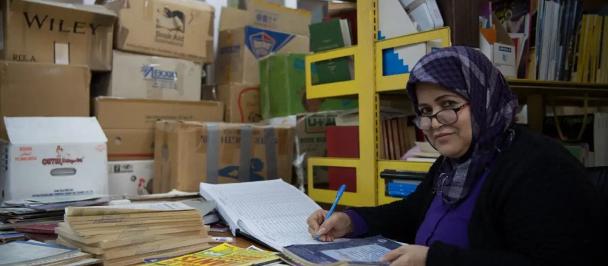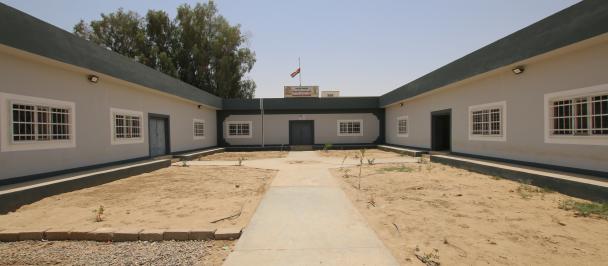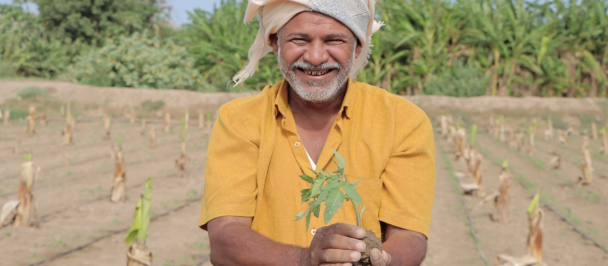The toughest plants grow in the harshest of weathers
Ubari: Reclaiming Education, Shaping the Future of Youth
January 9, 2024
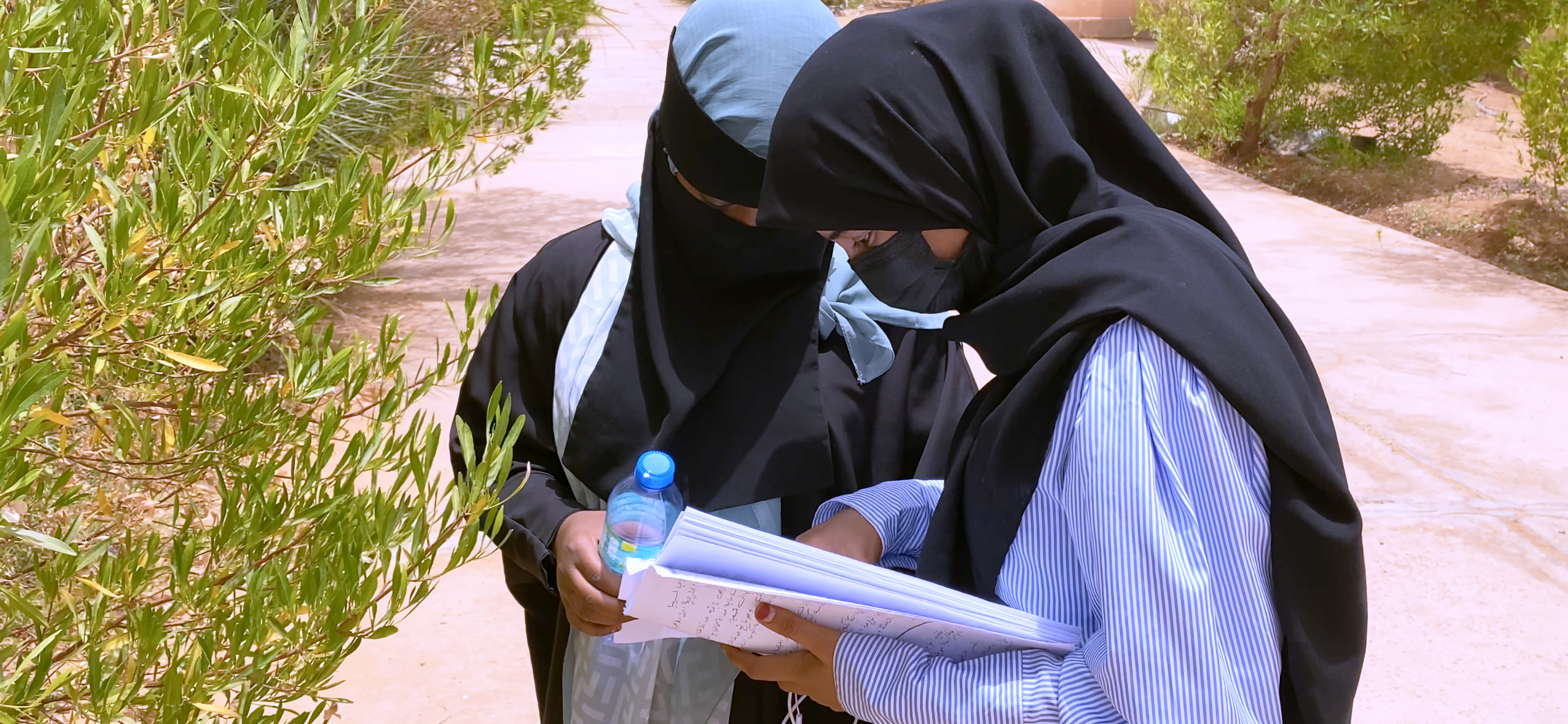
Mabrouka with her friend before their class
In the oasis town of Ubari, southwest of Libya, one of the sunniest and driest areas in the world, life finds a way where plants thrive against all odds. And it’s no different for the young people of the Saharan region, determined to carve their own path and build a better tomorrow, through education.
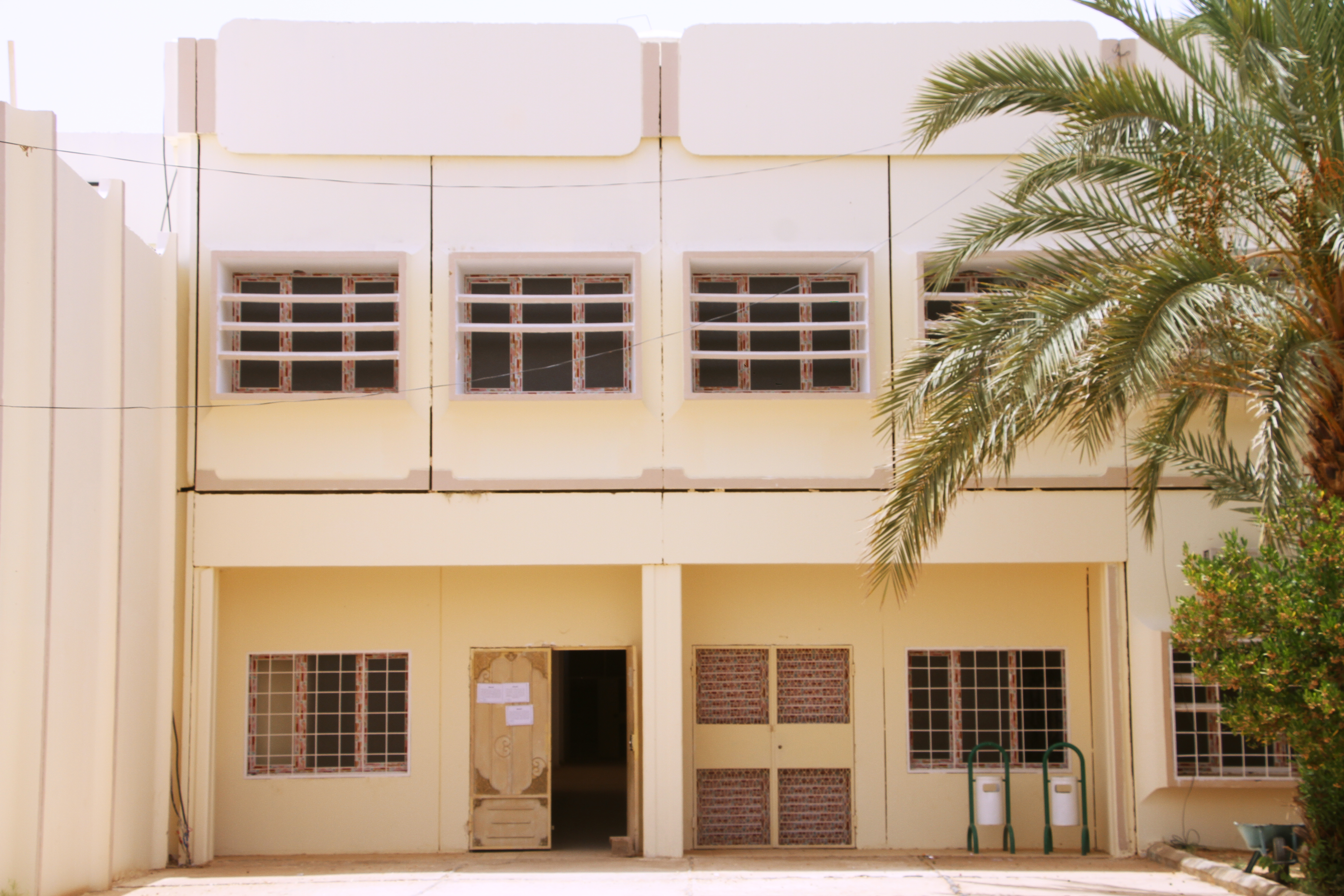
The University's rehabilitated building
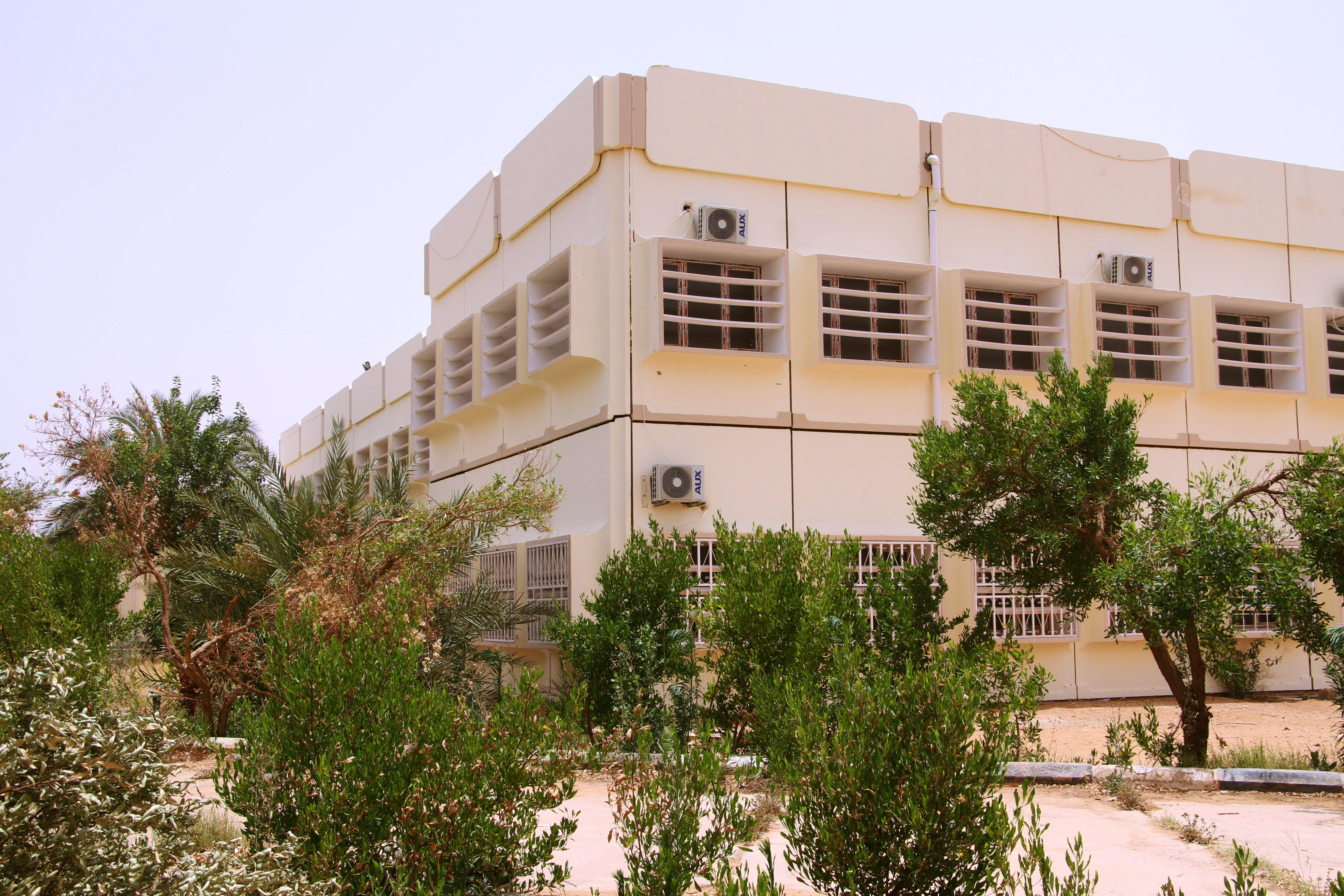
Mabrouka with her friend before their class
Education was disrupted in the region by the conflict that ravaged in 2015-2016. The fighting damaged vital infrastructure, including water and electricity systems, further exacerbating the hardships faced by the local population. The Faculty of Literature and Science of the University of Sebha in Ubari was not spared by the violence, and classes were suspended for over seven years.
“The building was severely affected” says Dr. Mohamed Ebaida, Dean of the Faculty, adding that, “the facilities were damaged due to burning, devastation and destruction”.
During the last seven years, students had to pursue their studies online, and because of poor internet connection in the region, that wasn’t an ideal solution for many students, including Mabrouka Mohamed;
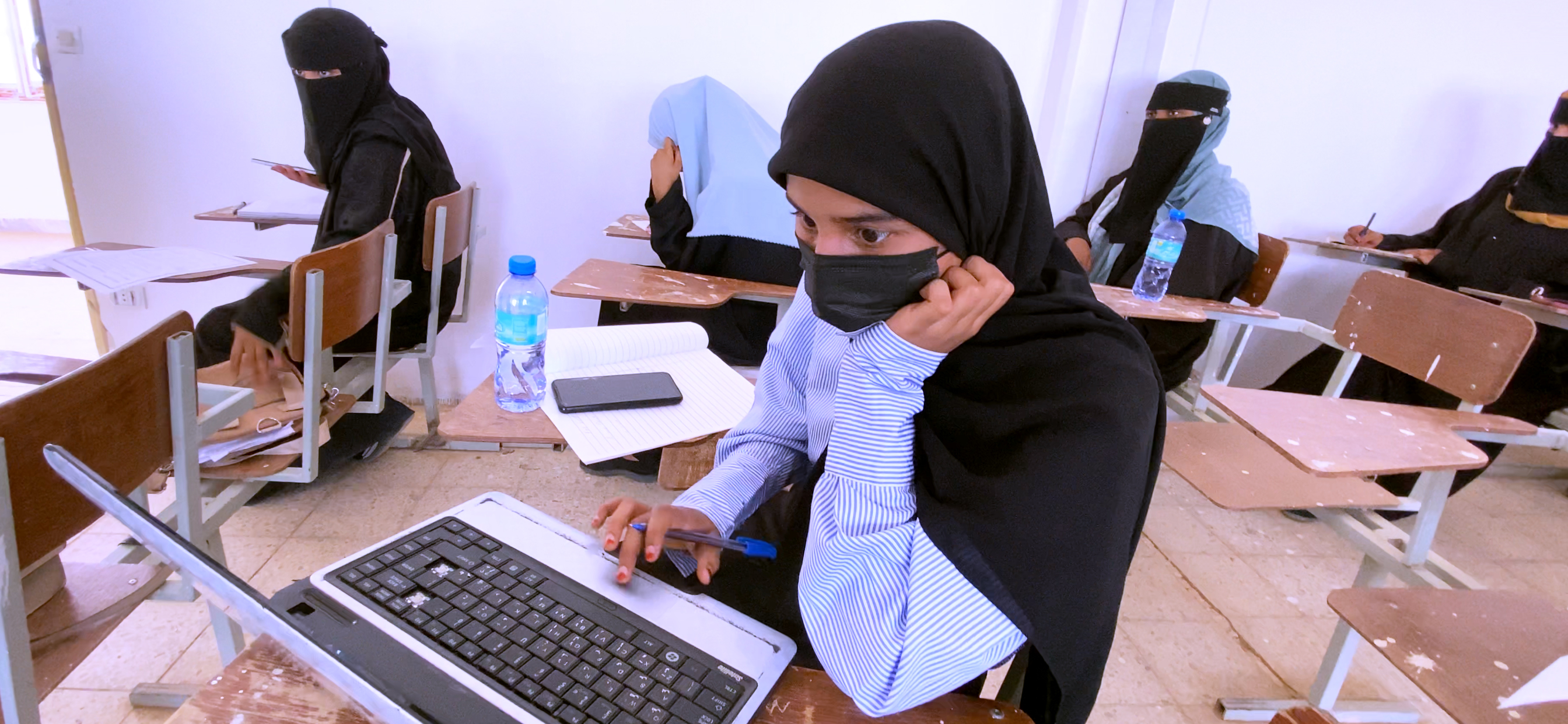
Mabrouka Mohamed attending class in Ubari.
“The University was in poor condition and was unsuitable for studying. We were dependent on remote studying, but studying online presented its own challenges.”
UNDP in collaboration with the Ministry of Higher Education and and the Ministry of Local Government, rehabilitated the Faculty of Literature and Science of the University of Sebha in Ubari. This initiative is supported by the European Union-funded Baladiyati project through the UNDP Local Peacebuilding and Resilience Programme.
In January 2023, the university finally reopened its doors, welcoming back 400 students and teachers. This includes students from diverse population groups, including the displaced communities, Tuareg, Tebu, and Arabs residing in this culturally rich town and its surroundings. The renewed university campus provides a long-due improvement of the educational environment, allowing students to engage with their lecturers in person and foster a deeper understanding of subjects.
As Mabrouka expresses, "The opportunity to learn in person has greatly enhanced our educational experience. Being physically present in the classroom creates a more engaging and interactive learning environment."
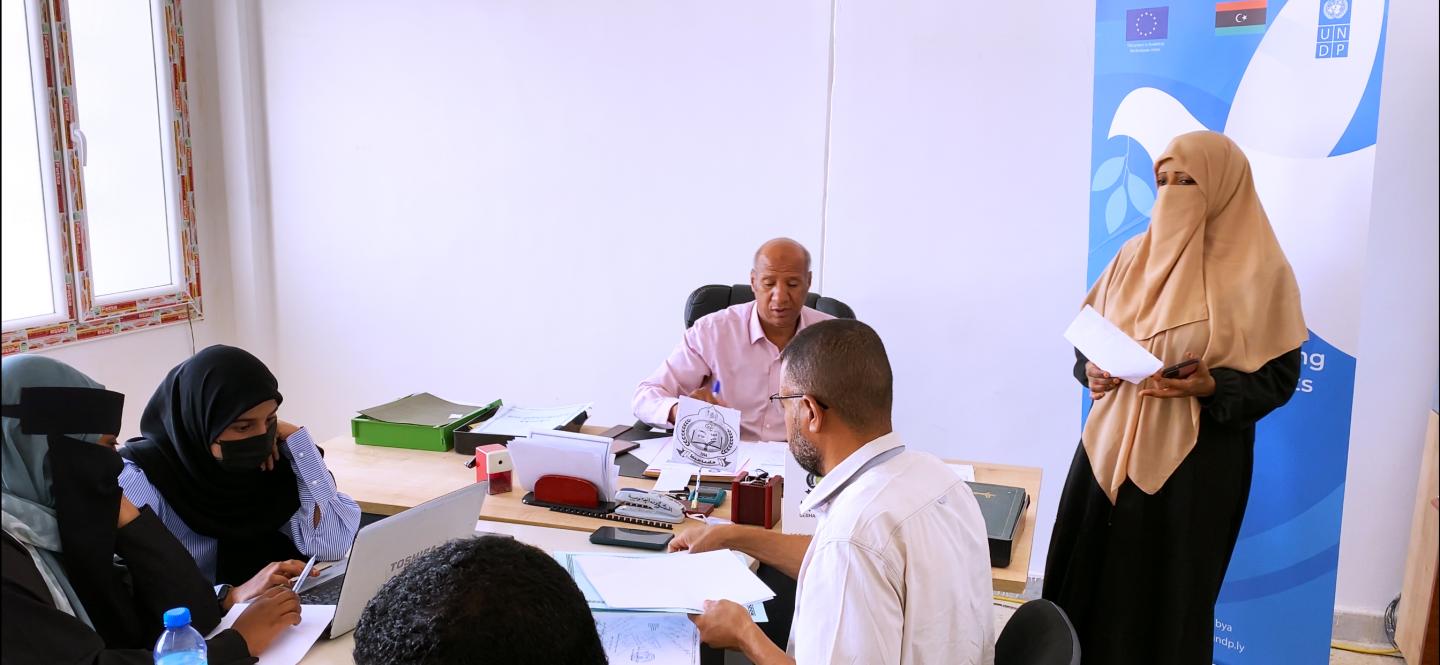
Mabrouka with her friend before their class
The university's rehabilitation has not only benefited students but also the broader community of Ubari. As the Dean of the Faculty reports, "Nearly all students, lecturers, and staff members have returned after being displaced during the conflict. The positive impact of the rehabilitation is evident, transforming lives, creating social cohesion among the communities, and offering hope for a brighter future."
The story of Ubari's Faculty of Literature and Science is a testament to the enduring power of education and resilience. It demonstrates how, even in the face of adversity, communities can come together to rebuild and create opportunities for a better tomorrow.

 Locations
Locations

